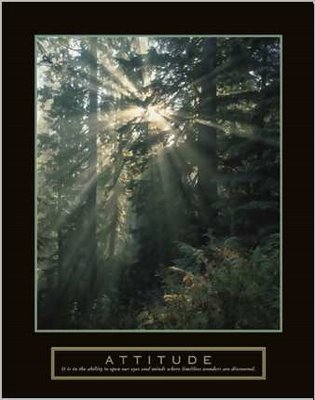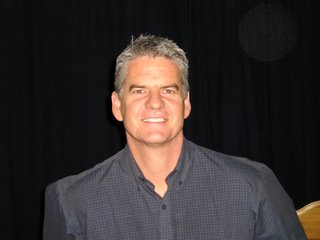Another Wounded Cop - Step Eight
If you are a new reader of this blog you may discover that threaded through my musings on the care of cops and their culture is a "twelve step" program for corporate reformation. Borrowing from the twelve step programs used for addictions and other chronic dysfunction, I've suggested a corporate application.
I have borrowed from my experiences with the RCMP, also recognizing that the culture and institutions of all police services are very similar. I meet with and hear from frustrated police officers and the frustrations all have a similar thread: lack of accountability and transparency in senior management, abuses of power, 'good ol' boys' mentality, deceitful decisions, and blind ambitions.
I will now be looking at Step Eight of the Twelve Steps. I encourage the reader to scroll down this blog to read the previous steps for it to make better sense.
The Twelve Steps - Step Eight
Original Wording ( A.A.): Made a list of all the people we had harmed, and became willing to make amends to them all.
Corporate Wording: We initiate an Employee Reconciliation Program designed to investigate the corporate responsibility as it relates to police officer burnout, alcoholism, Post Traumatic Stress Disorder, excessive discipline, harassment, bullying, medical discharges and contemptuous correspondance. We are prepared to make amends to those who have been harmed by the institutional wrongdoing.
Commentary:
I just received word today that a man I once worked with had died in his sleep and had likely not been found for a week. For privacy purposes I will call him Jim. I first met Jim in the mid 1980's when he was heavily involved in undercover work. He was very rough around the edges, yet when you came to know Jim you sensed a caring spirit and wounded heart. Jim's refuge from a harsh and compromising world was alcohol. Everyone knew Jim had a problem but it seemed that it was never addressed.
Undercover work, while highly exciting ( and necessary in policing) , is an environment where alcohol flows freely, deceit is a way of life, family is secondary, and personal demons are suppressed and ignored. Jim was one of the best at the game, and its negative influences took its toll on him and his family.
I remember working with Jim in the late eighties where I was asked to keep an eye on his alcohol consumption while leading him in an undercover operation. I had told my supervisor that this was not my role and that if the RCMP acknowledged a problem then I felt it was up to the management to deal with the problem as opposed to burdening me, a subordinate, with the issue.
As with many successful undercover operators, Jim, sadly, was used and abused, in spite of the knowledge by superior officers that the environment of undercover was conducive to exacerbating his struggle with alcoholism.
This is a somewhat complex issue when it comes to understanding responsibility. But the questions need to be asked, is there not a corporate responsibility when it comes to the emotional and mental health of the employee, the police officer? Jim certainly had free will to refuse another undercover job, but I also feel strongly that many people turned a blind eye to his problem as long as he was getting the desired result in his undercover work.
The sad part of this story is that it is the story of many police officers. Alcoholism is rarely addressed and only spoken of in awkward and sometimes condemning conversations. Instead of being addressed with courage, compassion, and understanding, it was often swept aside with a "nudge nudge, wink wink" mentality which only caused further hurt and damage.
I don't know how I would have responded when I was in my undercover heyday ( or should I say "haze" day) if someone would have shown legitimate concern for my lifestyle choices. I would likely have got angry, but at least I would have known that someone cared enough to speak truth into my life.
Many police officers have been damaged and hurt deeply by the institution. Many have been used and discarded, abused and ridiculed, scapegoated and forgotten. These wounds penetrate deeply.
I hadn't spoken with Jim in years, but often thought of him as I heard about his attempts at recovery. He is one who deserved an apology from the institution he served to the best of his abilities. He caught alot of bad guys, but has become another statistic of an institution that tends to eat their own.
Perhaps he should be remembered with similar ceremony by the RCMP as those who died while on the job. Because in many ways, so did Jim.
I have borrowed from my experiences with the RCMP, also recognizing that the culture and institutions of all police services are very similar. I meet with and hear from frustrated police officers and the frustrations all have a similar thread: lack of accountability and transparency in senior management, abuses of power, 'good ol' boys' mentality, deceitful decisions, and blind ambitions.
I will now be looking at Step Eight of the Twelve Steps. I encourage the reader to scroll down this blog to read the previous steps for it to make better sense.
The Twelve Steps - Step Eight
Original Wording ( A.A.): Made a list of all the people we had harmed, and became willing to make amends to them all.
Corporate Wording: We initiate an Employee Reconciliation Program designed to investigate the corporate responsibility as it relates to police officer burnout, alcoholism, Post Traumatic Stress Disorder, excessive discipline, harassment, bullying, medical discharges and contemptuous correspondance. We are prepared to make amends to those who have been harmed by the institutional wrongdoing.
Commentary:
I just received word today that a man I once worked with had died in his sleep and had likely not been found for a week. For privacy purposes I will call him Jim. I first met Jim in the mid 1980's when he was heavily involved in undercover work. He was very rough around the edges, yet when you came to know Jim you sensed a caring spirit and wounded heart. Jim's refuge from a harsh and compromising world was alcohol. Everyone knew Jim had a problem but it seemed that it was never addressed.
Undercover work, while highly exciting ( and necessary in policing) , is an environment where alcohol flows freely, deceit is a way of life, family is secondary, and personal demons are suppressed and ignored. Jim was one of the best at the game, and its negative influences took its toll on him and his family.
I remember working with Jim in the late eighties where I was asked to keep an eye on his alcohol consumption while leading him in an undercover operation. I had told my supervisor that this was not my role and that if the RCMP acknowledged a problem then I felt it was up to the management to deal with the problem as opposed to burdening me, a subordinate, with the issue.
As with many successful undercover operators, Jim, sadly, was used and abused, in spite of the knowledge by superior officers that the environment of undercover was conducive to exacerbating his struggle with alcoholism.
This is a somewhat complex issue when it comes to understanding responsibility. But the questions need to be asked, is there not a corporate responsibility when it comes to the emotional and mental health of the employee, the police officer? Jim certainly had free will to refuse another undercover job, but I also feel strongly that many people turned a blind eye to his problem as long as he was getting the desired result in his undercover work.
The sad part of this story is that it is the story of many police officers. Alcoholism is rarely addressed and only spoken of in awkward and sometimes condemning conversations. Instead of being addressed with courage, compassion, and understanding, it was often swept aside with a "nudge nudge, wink wink" mentality which only caused further hurt and damage.
I don't know how I would have responded when I was in my undercover heyday ( or should I say "haze" day) if someone would have shown legitimate concern for my lifestyle choices. I would likely have got angry, but at least I would have known that someone cared enough to speak truth into my life.
Many police officers have been damaged and hurt deeply by the institution. Many have been used and discarded, abused and ridiculed, scapegoated and forgotten. These wounds penetrate deeply.
I hadn't spoken with Jim in years, but often thought of him as I heard about his attempts at recovery. He is one who deserved an apology from the institution he served to the best of his abilities. He caught alot of bad guys, but has become another statistic of an institution that tends to eat their own.
Perhaps he should be remembered with similar ceremony by the RCMP as those who died while on the job. Because in many ways, so did Jim.


